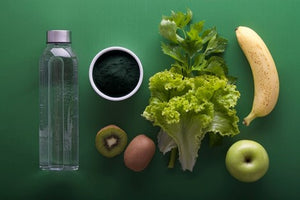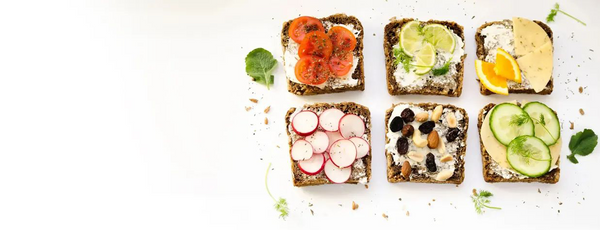
Healthy Microbiome, Healthy Life
We usually associate bacteria with illness and disease. But your body is full of bacteria, both good and bad, that are necessary for our bodies to function. The human body is home to trillions of microorganisms that interact with our cells to promote health from head to toe:
• Healthy and efficient digestion
• Proper brain function and mood
• Good skin health
• Healthy weightStrong immunity


WHY PROMOTING GOOD BACTERIA IS SO IMPORTANT
It’s a 24-hour battleground in the microbiome, and the best way to help our bodies win the fight against illness and infection is to encourage the growth of good bacteria. When good bacteria dominate the bad bacteria, the body thrives.
Different types of probiotics help move food through your gut, produce vitamins and fatty acids, encourage nutrient absorption, boost immunity and protect against carcinogens.
Bad bacteria cause malfunctions in your body such as illness, allergies, chronic disease, poor organ function, and infection. In fact, an unbalanced gut has been linked to several concerns from obesity and asthma to depression and chronic fatigue.
Good bacteria come in many different forms that serve different functions. The most common bacteria used as probiotics are Lactobacillus Acidophilus, Bifidobacteria, and Clostridium butyricum.

Lactobacillus Acidophilus
Lactobacillus Acidophilus are the most common type of probiotics, and you can find them in yogurt and fermented foods. Its name gives away its most important role: creating lactic acid (1). Lactobacillus helps to promote healthy bowel movements and can ease the discomfort for people who have a hard time digesting lactose.

Bifidobacteria
Bifidobacteria are y-shaped bacteria that hang out in your intestine and are also found in dairy products. Bifidobacteria are incredibly important to human function but only make up around 10% of the body’s total bacteria (2). These good bacteria help our bodies digest fiber and complex carbohydrates. Our bodies need to properly digest fiber to prevent unhealthy weight gain, diabetes, IBS, and other health issues.

Clostridium Butyricum
Clostridium butyricum produces short-chain fatty acids that protect our brain, reduce inflammation, support liver health, boost immunity, and increase the growth of Bifidobacteria and Lactobacilli while reducing bad bacteria.

Simply put, prebiotics are the food probiotics need to do their job. Prebiotics are nondigestible fiber found in plant-based foods. Without prebiotics, probiotics wouldn’t have the fuel to reproduce and fight off bad bacteria. And with no probiotics, prebiotics would build up and serve little purpose. The probiotic and prebiotic relationship is essential for proper gut function.
• PREBIOTICS are consumed through plant-based foods like garlic, bananas, onions, Jerusalem artichoke, legumes, asparagus, and yacon root.
•PREBIOTICS are mainly non-digestible fiber and carbohydrates, so they skip right past digestion and are fermented by the microbiome in the colon.
•PROBIOTICS eat prebiotics once they enter the GI tract. Once they’re full and happy, probiotics reproduce and fight off bad bacteria.
Foods that Contain Prebiotics
Prebiotics are found in a wide variety of plant-based foods, specifically tuberous roots and onions. Your probiotics will have plenty of food through your daily intake of prebiotics.
• Jicama
• Chicory Root
• Leafy Greens
• Asparagus
• Bananas
• Garlic
• Onions
• Legumes
• Jerusalem Artichoke
Foods that Contain Probiotics
Many sour and fermented foods contain gut-healthy probiotics, but if you only stick to kombucha, you may not be getting all the probiotics you need. Eating a variety of whole, plant-based foods can increase diversity in the gut, which also promotes gut health.
• Sauerkraut
• Pickled Vegetables
• Kefir
• Yogurt
• Natto
• Kimchi
• Tempeh
• Miso


